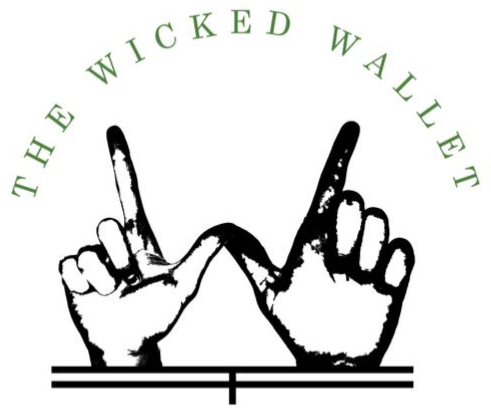The Round Up
With the goal of helping beginners learn how easy it is to house hack, this series has come to an end… for now at least. After three (four if you include How to Never Pay Rent Again) info-packed articles, a quick recap of information is necessary to ensure that you did not miss anything. Check out the summaries below to get a high-level synopsis of each.
The House Hacking Series: Part 1 – Covering the Basics
If you read Part 1, then you remember all of the potential options for house hacking and how you can really create any sort of mix and match that fits your situation. You probably also remember all of the different loan types talked about in How To Never Pay Rent Again and some new ones too. Lastly, the topic of how to save for a downpayment with steps was introduced.
The House Hacking Series: Part 2 – How to Landlord
In Part 2 of the series, we looked into what it takes to be a landlord. Discussing all the the responsibilities that comes with being the property owner, the option of hiring property managers and how being prepared is always the best strategy. It’s hard to always be prepared, but you should at least try to be constantly educating and networking to stay on top of the topic.
The House Hacking Series: Part 3 – Finding and Analyzing Deals
Part 3 was all about finding and analyzing deals.Touching on market analysis and the type of realtor you need to be using. Also looking into all of the formulas you need to know and use when you are comparing deals to ensure you are making a financially sound decision.
While the recaps above provide you with a brief summary on the articles, it is best to revisit each of them to take notes and gather all of the important information necessary to begin your house hacking journey. With that said, below are some final terms and strategies that are vital to know before you buy.
Appreciation
Appreciation is when a property’s value rises over time. There are two types of appreciation; market appreciation and forced appreciation. Market appreciation is when the housing market where the property is located is in high demand, therefore prices of all properties tend to rise. Forced appreciation is when the owner of the property renovates and remodels the home to force its value to increase (ex. add a bedroom, bathroom or garage).
While appreciation is great, you should not base your purchase on how much you expect a property to appreciate. Appreciation is speculation, it is a guess and you do not have any guarantee to it occuring.
Forced appreciation is more in your control. You are able to add additions onto the property, fix it up and do a variety of renovations that will make it worth much more on the market. Conduct market research on the values of properties with one or two more bedrooms or bathrooms to see if it is a drastic difference.
Equity
Equity is the portion of your property that you actually own. So say you only put down 3.5% on your loan, then you own 3.5% of the home. This sounds silly, I know, because you bought the property so you should own it completely. However, the lender still has a percent interest in the home as long as you owe them money on your loan.
As you work towards paying down your mortgage, your equity increases (you own more of the home). If your property value increases due to appreciation, your equity also increases because the percent you owe is still on the original value however the actual value of the property increased.
For example, if you bought a home for $100,000 and put 20% down, or $20,000. That means you owe $80,000 on your mortgage. But what if your home triples in price so it now has a value of $300,000. You still only owe the original $80,000 which is only about 27% of the new value of the home or in other terms, you now have about 73% equity in the home!
Remember that equity is an asset. This will add to your net worth. You can keep this equity within the home or you can utilize it towards another investment. The two ways to use this equity are 1. A Home Equity Line Of Credit (HELOC) or 2. Home Equity Loan (Partial or Full Amounts). Depending on the investment, each can be a viable means of cash flow.
Equity is yet another reason why house hacking is a genius strategy for beginners. If done right, house hacking allows you to collect rent payments that completely cover your mortgage payment. By doing this, you are inherently building equity in the home.
Avoiding PMI
With a lot of the loan options mentioned in Part 1 and How to Never Pay Rent Again, you will unfortunately have to pay Private Mortgage Insurance (PMI). This is due to the fact that you are putting down a much smaller amount of money than normal. It is the lenders way of hedging the risk of foreclosure.
PMI is no longer required once you have reached 20% equity in the property, which is why it is not a requirement for when you put a 20% downpayment on a home. Be sure to talk with your lender about PMI and the paydown requirements as terms can vary.
The most common way to get rid of PMI quickly is to refinance your loan. By refinancing, you will be having the property appraised which will (hopefully) show the property has gone up in value. Of course, you will have had to completed some home improvements for this to occur (forced appreciation) or have the market be working in your favor (market appreciation). Then once the value is appraised higher than what you bought it for, you are able to refinance your mortgage and get rid of that PMI monthly payment if the value increased enough to give you 20% equity in your home.
BONUS #1: If you try googling “Low Down Payment Loans With No PMI” (optional: add your state to the end of the search thread) then you will see many options provided that do not require you to pay PMI. Yes, more often than not there will be catches. Maybe you can’t buy a multi-family or maybe you have a larger down payment than 3.5% however it is still worth exploring all of your options.
BONUS #2: Ever heard of Piggybacking? It is when you take out multiple loans instead of just one for your whole mortgage. One loan would be for the 20% down and the other for the remaining 80% of the mortgage. Check out this article by Investopedia that describes the strategy in detail.
BONUS #3: To get out of PMI if you have an FHA loan, then you will also have to get out of your FHA loan. Sounds complicated however all you really have to do in refinance into a different type of loan. Talk to your lender about this strategy as it is much more common than you may think. Your lender will be more than happy to help you.
An Easy Stepping Stone Into Real Estate
In my opinion, utilizing the house hacking strategize is the easiest way to get your foot in the door with regards to owning rental properties. It allows you to live for free (or at least extremely discounted) while learning how to be a landlord, property owner and business owner.
Assuming when you live there that you don’t hire a property manager, you will learn first hand what it takes to care for the property, maintain tenant communications and stay compliant with local and federal housing laws. It really is a win-win situation.
Final Thoughts
Whether you are using this as a guide to help steer you in the right direction or just for some fun reads this week, I hope you enjoyed this post. Everyone has to start somewhere and house hacking couldn’t be a better stepping stone into real estate. Just always be sure to do your due diligence when the time comes.
If you are interested in more information regarding house hacking, please let us know in the comments so we can be sure to dive deeper into your specific questions!
For more wicked reads check out these articles:
- Is The BiggerPockets Pro Membership Worth It?
- 5 Best Tips For New Landlords
- House Hacking 1-Year Anniversary



